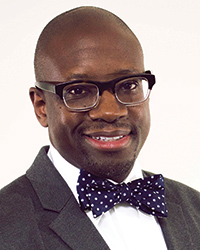 In the wake of the Supreme Court’s egregious same-sex “marriage” ruling, the church faces a host of challenges. The secular gospel of sexual liberation as a human right has captured the public imagination, thanks especially to the aggressive marketing of corporate and media establishments. Marketing ploys portray a confused and deeply harmful view of sexuality, one that debases men and women, as “beautiful and true.” How can the church help expose the flawed logic of the sexual revolution and bring hope and healing to society?
In the wake of the Supreme Court’s egregious same-sex “marriage” ruling, the church faces a host of challenges. The secular gospel of sexual liberation as a human right has captured the public imagination, thanks especially to the aggressive marketing of corporate and media establishments. Marketing ploys portray a confused and deeply harmful view of sexuality, one that debases men and women, as “beautiful and true.” How can the church help expose the flawed logic of the sexual revolution and bring hope and healing to society?
First and foremost, the church needs to be persuasive to the up and coming generation. Too many times has the church come across as irrelevant or even oppressive. The church must present a compelling response to the “liberating” claim of the sexual revolution, exposing this claim for the lie that it is and fleshing out a biblical alternative that is more fulfilling and life-giving individually and socially. To be effective, this articulation must not be confined to like-minded circles, but fully conversant with the predominant secular narrative, going toe-to-toe with its best spokespeople.
Ryan T. Anderson puts it eloquently when he says; “It (the church) needs to make the truth about human sexuality and its fulfillment in marriage not only attractive and appealing, but noble and exhilarating. This is a truth worth staking one’s life on.”
The public can only be won over, however, if the church reaches out to those with same-sex attraction and gender identity confusion in a humane and compassionate way. One important way to roll back the false, hurtful narrative promoted by culture is to enter into deep friendships and promote ministries that help these individuals to form a biblical view of themselves and God’s unique calling in their life. The precedent set by the pro-life movement to tirelessly provide compassionate resources through crisis pregnancy centers are instructive.
 Furthermore, the church and all Christians must learn for themselves and then effectively explain the biblical view of human sexuality, marriage and the gift of friendship. This is essential, both within local churches and in secular culture. Also, it is increasingly important that we become knowledgeable about the importance of religious liberty to ourselves and to the underpinnings of our society – and able to communicate this well. This will require intellectual exertion from Christians to equip themselves with the knowledge and intellectual agility to defend biblical teachings in the public sphere. One such source is Ryan T. Anderson’s book, Truth Overruled: The Future of Marriage and Religious Freedom, which promises to be a definitive guide on promoting truth about marriage in society.
Furthermore, the church and all Christians must learn for themselves and then effectively explain the biblical view of human sexuality, marriage and the gift of friendship. This is essential, both within local churches and in secular culture. Also, it is increasingly important that we become knowledgeable about the importance of religious liberty to ourselves and to the underpinnings of our society – and able to communicate this well. This will require intellectual exertion from Christians to equip themselves with the knowledge and intellectual agility to defend biblical teachings in the public sphere. One such source is Ryan T. Anderson’s book, Truth Overruled: The Future of Marriage and Religious Freedom, which promises to be a definitive guide on promoting truth about marriage in society.
Finally, Christians must live biblical values regarding human sexuality to its fullest, including chastity and fidelity. Those who are single can deepen in their powerful contribution to godly friendships and community. Those who are married are challenged to embrace the biblical posture of mutual submission and every biblical attitude of the heart that enables marriages to endure and families thrive. The church needs to foster a living example of the benefits of robust marriages and flourishing families, or the argument will be lost on the next generation.
See Canon and Culture for more on rebuilding the marriage culture.



